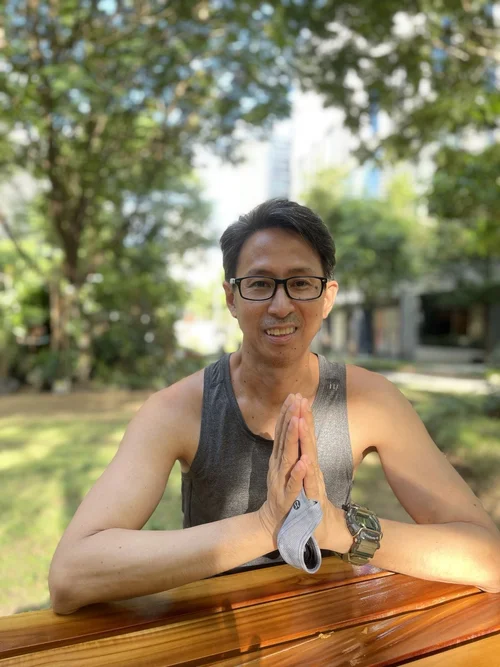“Meditation has thousands of forms,” says Teacher Neil Salang, a teacher of Yogic Meditation. This form of meditation encourages the focusing of all your attention on one point with no distractions, silencing the mind and body. The eyes are closed, the body does not fidget or move, and practitioners are asked to draw their life force energy (also called prana) inward.
Yogic Meditation encourages the shut down of the five senses so as to make the meditation practice really effective. The practice focuses on the breath and slows down energy usage. As the prana settles towards the middle of the body, the muscles begin to relax and a meditative state can be achieved.

“It’s hard to practice mindfulness without a formal meditation practice,” says Teacher Neil, who practices meditation twice a day, finding that first thing in the morning is usually the best time for meditation. A formal, seated and consistent meditation practice makes mindfulness easier because the peace and calmness often sought and encouraged in mindfulness comes much more easily to those that meditate, almost as if one is sustaining part of the meditation process through mindfulness several times a day.
For moms this can be critical. “Mothers are the life force of the house. Everyone leans towards mom,” says Teacher Neil, candidly sharing that when he was younger and first started living alone, he always felt more at peace when home visiting his mom. “Moms are the beacon of light and foundation of the home. But life’s challenges eventually dim the light and weaken the foundation. Meditation provides the much needed mental and emotional respite for moms who needs to continuously provide that inner strength for the needs of the family.”

Backed by neuroscience, meditation targets specific neurons in the prefrontal cortex, the area of the brain that governs concentration, decision making, and awareness. The manner in which meditation trains the brain develops empathy and compassion while also increasing rationality and balance or control of emotions. Literally helping practitioners see from a more neutral perspective. The more frequently it is practiced, the more the brain can strengthen and sustain this peacefulness and calm, frequently reinforced by mindfulness practices throughout the day.
This is why Teacher Neil believes that “meditation is of critical importance for moms.” It can help moms address anxiety as well as address chronic problems, like frequent headaches or stomach pain. (Anxiety often manifests in the body through chronic diseases, which often worries moms even more.) “Meditation makes your brain your friend,” says Teacher Neil. “It allows you to not worry all the time.”
(Side note: As an added bonus, meditation helps release the Growth Hormone, which as you get older can act as a youth preserving chemical. No wonder those that meditate always seem younger!)

Neil Salang is the founder of Awake.ph. They recently partnered with the Goldie Hawn Foundation’s Mind Up Program, a program that created a meditation curriculum for children. Awake.ph is now offering the program to schools in the Philippines. To get more information on either personal meditation practices or meditation and mindfulness classes for your child’s school, you can visit Awake.ph or email [insert here].

Leave a Reply